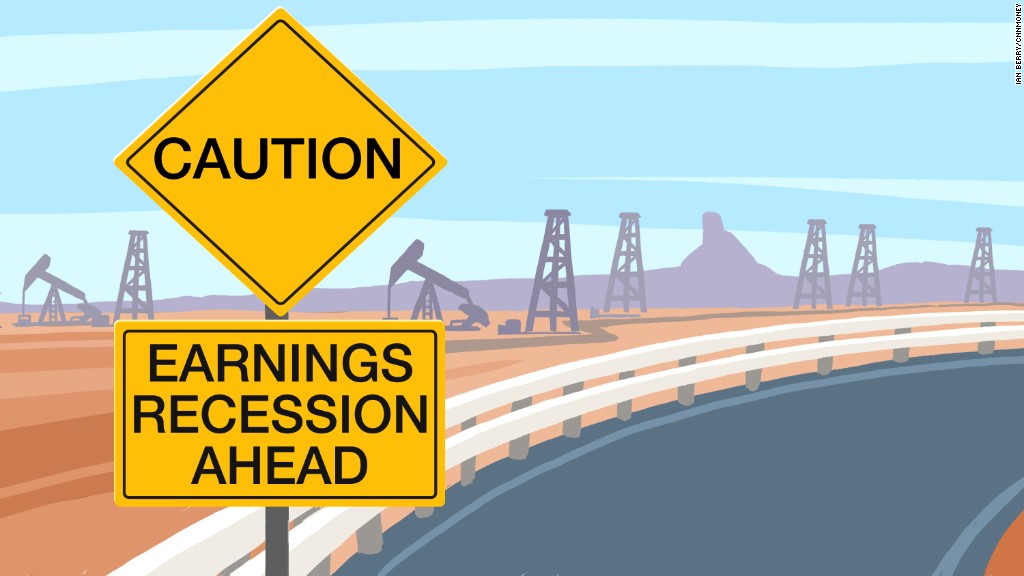
Alarmist market calls have gotten a lot of attention so far this year.
Gold will soar! Oil could hit $10! Sell everything! Prepare for a return to the barter system! (Okay. I made that last one up.)
But for one day at least, the optimists seemed to be back in control on Wall Street. Stocks were up Tuesday following Friday's steep slide.
And several investment firms put out cheery reports on Tuesday morning to try and reassure investors that the sky isn't falling. (Maybe we all just needed a three-day weekend to calm down?)
Deutsche Bank chief equity strategist David Bianco defended stocks in a report Tuesday called "Gotta swing when you see it." He must be eager for spring training to start.
Bianco wrote, "We are not panicked by this correction because we understand it. It's driven by a profit recession centered at certain industries caused by factors that we've long flagged as risks."
In other words, nobody should be surprised that the dramatic plunge in oil prices is bad news for the bottom lines of energy and industrial companies.
Bianco added that "this correction has overly punished other sectors and now we're ready to take advantage of it." He said there are opportunities in health care and technology stocks as well as financials.
And he said the next 5% move in the S&P 500 is likely "to be up and soon."
Bianco wasn't the only raging bull to pipe up on Tuesday.
Related: Investors are terrified ... and they're overreacting
Darrell Cronk, president of the Wells Fargo Institute, referred to the market as "bent -- not broken," and that the pullback of the past two weeks could quickly reverse itself if sentiment changes.
"It is important to remember that rebounds can be as swift as sell-offs," Cronk said.
RBC Capital Markets chief U.S. market strategist Jonathan Golub added that talk of a bear market -- a 20% pullback from recent highs -- seems to be a bit overdone.
Sure, the U.S. economy isn't exactly roaring. But it is growing. And the job market is quite healthy. It's hard to see a major downturn lurking around the corner -- despite worries about China and the carnage in commodities.
"History shows that sell-offs of 20% or more rarely occur in the absence of a recession," he wrote, noting that 1987 is the only time in the past 50 years that the market crashed without a corresponding economic slowdown.
Golub added that "the majority of economic indicators point to continued economic expansion."
Related: Global fears may mean fewer Fed rate hikes
Several strategists said the near-term market turmoil could wind up being good news longer-term for stocks. That's because it may mean the Federal Reserve will be less likely to raise interest rates as many times as originally expected.
The Fed has hinted it may boost rates four times this year, something that has spooked investors.
"The U.S. expansion continues but is slowing, lowering the need for numerous Fed rate hikes," said Jason Pride, director of investment strategy for Glenmede.
Pride also thinks investors are focusing too much on oil and overlooking the possibility of stronger profits in consumer discretionary stocks (think autos and retail) as well as health care and financials.
And then there's JPMorgan Funds chief global strategist David Kelly. He concedes that "in a deeply negative atmosphere many investors may be tempted to sell out of the stock market."
But he challenged investors to consider the following five questions before running for the hills.
- Is the global economy really threatened by China or oil?
- Is the U.S. economy on the brink of recession?
- Are interest rates likely to remain low?
- Are earnings likely to rebound?
- Are stock valuations somewhat cheap in absolute terms and very cheap relative to bonds and cash?
Kelly said the answer to questions 1 and 2 is "No" while the answer to questions 3, 4 and 5 is "Yes."
With that in mind, here's his advice.
"For long-term investors, this suggests that this is a terrible time to get out of the market." And he adds that now "should be a very good time to put cash to work in U.S. equities."
Related: These stocks are getting crushed
Still, it's understandable why investors are rattled and not yet convinced that the worst is over.
And even if stocks ultimately stabilize, there aren't many super bullish experts out there predicting another big rally like the one we had from 2009 through 2014.
Jeffrey Knight, global head of investment solutions and asset allocation for Columbia Threadneedle, thinks this year will look a lot like last year.
"Our base case for 2016 ... is a continuation of the environment of 2015: lower returns, higher volatility, market prices that fluctuate significantly but proceed in a mostly sideways pattern," he said.
So flat may be the new up. But at least that's better than down.


